
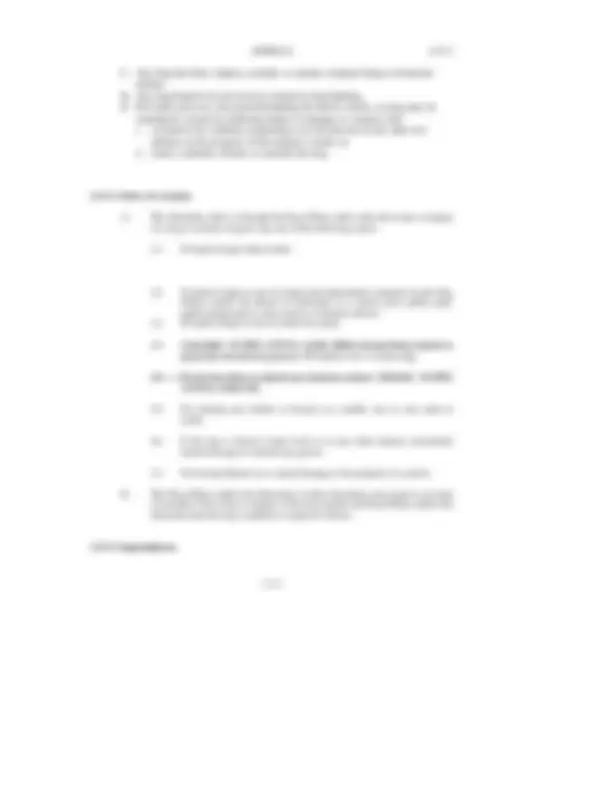
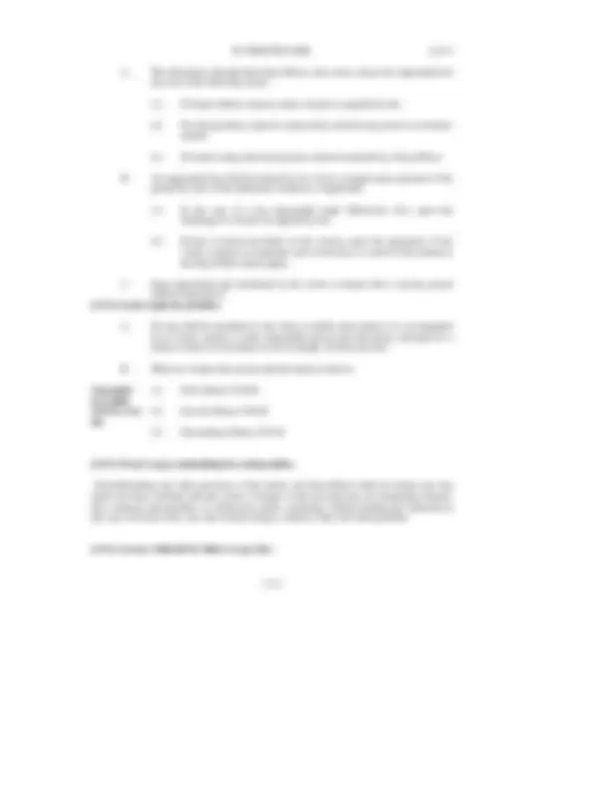
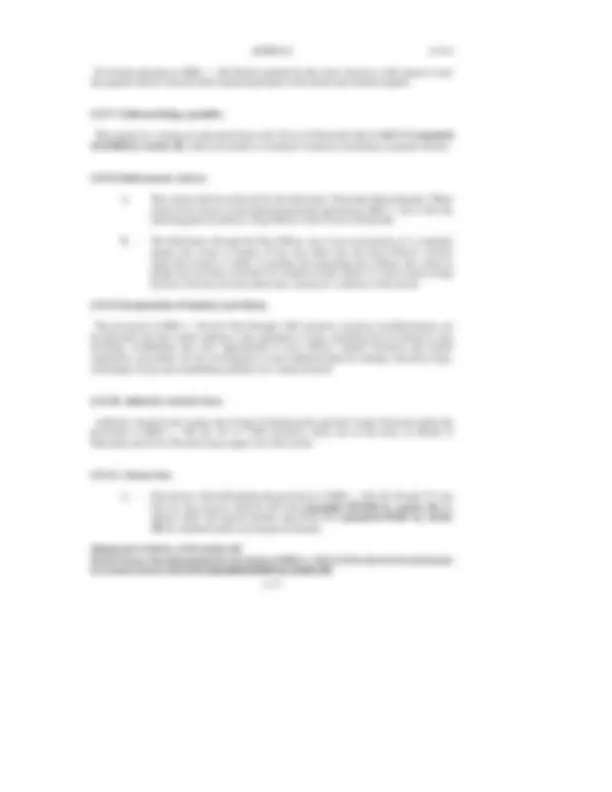
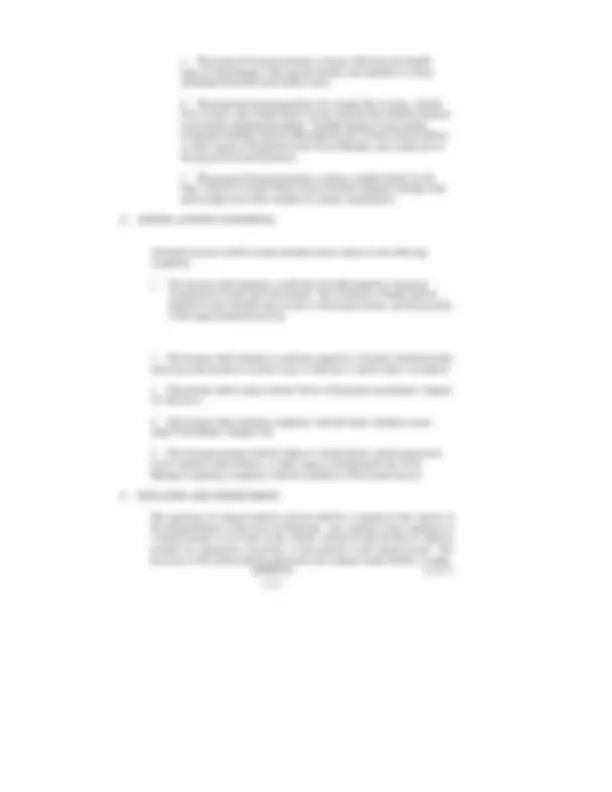
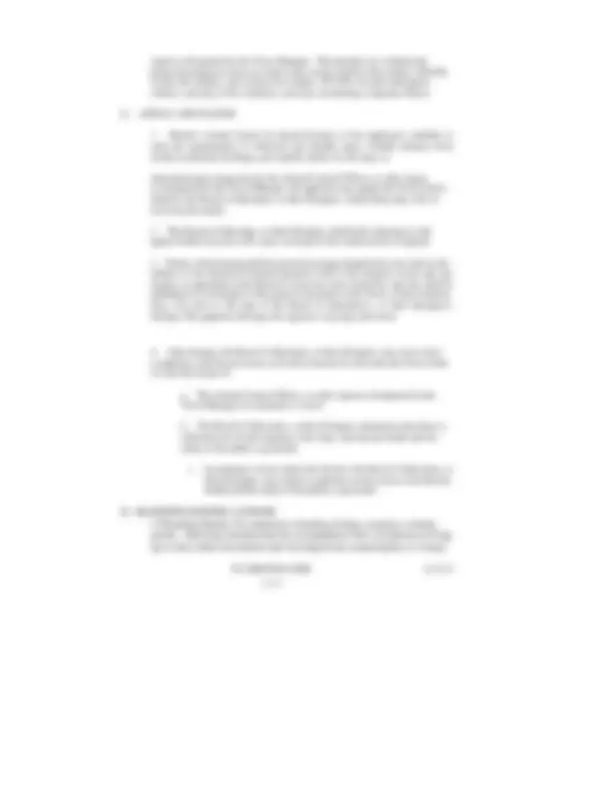
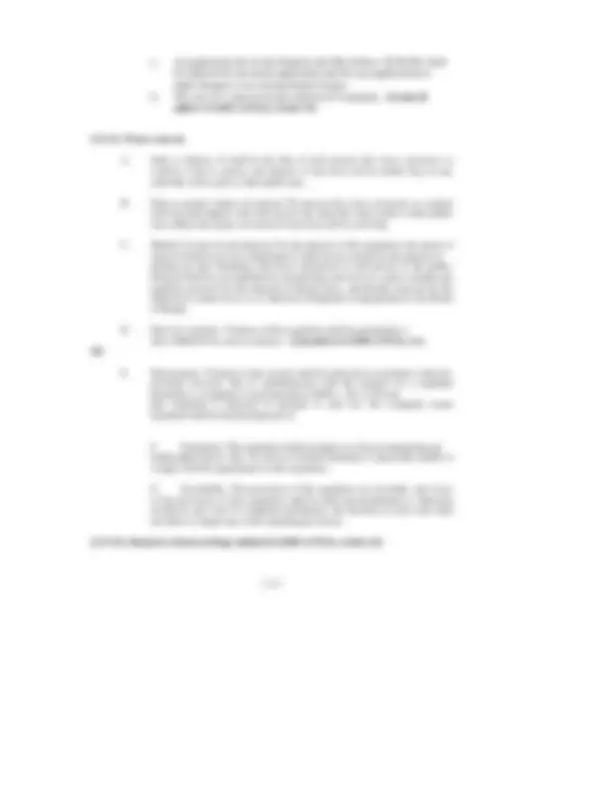
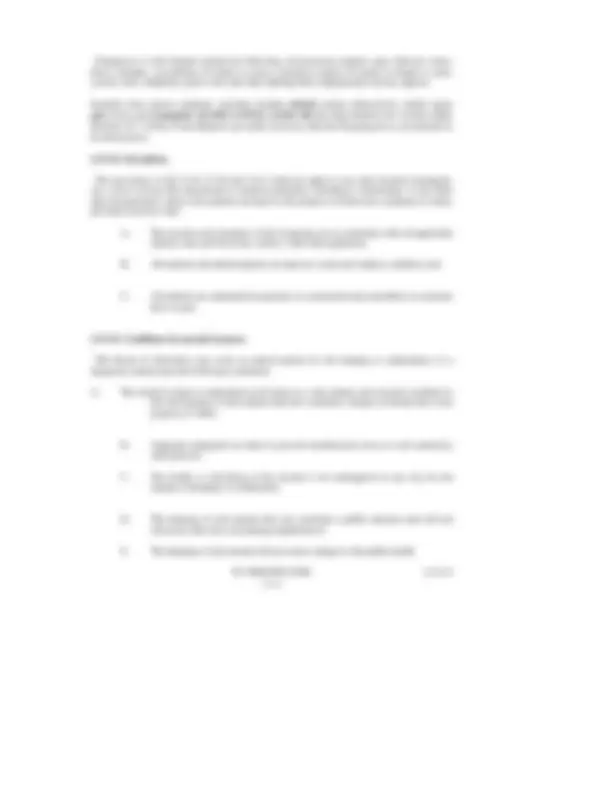
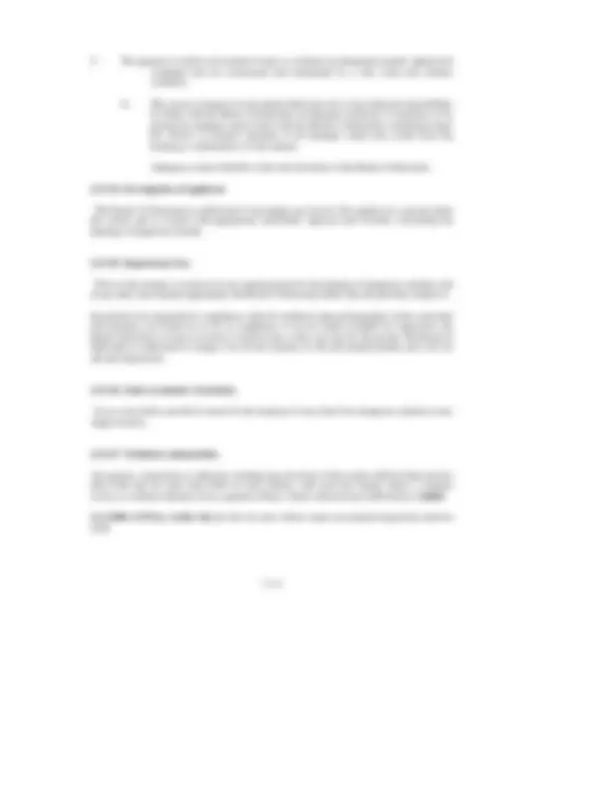
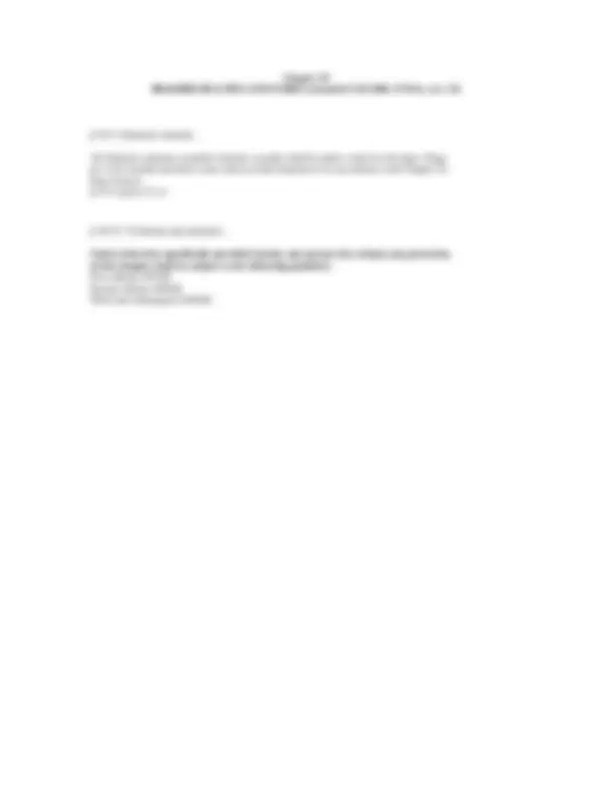


Study with the several resources on Docsity

Earn points by helping other students or get them with a premium plan


Prepare for your exams
Study with the several resources on Docsity

Earn points to download
Earn points by helping other students or get them with a premium plan
Community
Ask the community for help and clear up your study doubts
Discover the best universities in your country according to Docsity users
Free resources
Download our free guides on studying techniques, anxiety management strategies, and thesis advice from Docsity tutors
The regulations for owning and keeping dogs in a Massachusetts town, including requirements for licensing, kennels, and dangerous animals. It also covers fees, inspections, and the process for appealing denials. The document also includes provisions for the enforcement of these regulations.
What you will learn
Typology: Lecture notes
1 / 15

This page cannot be seen from the preview
Don't miss anything!










Chapter 23
Dog Control
§ 23-1. Definitions.
§ 23-2. Order of restraint.
§ 23-3. Impoundment.
§ 23-4. Leash required; penalties.
§ 23-5. Owner to pay outstanding fees and penalties.
§ 23-6. License withheld for failure to pay fine.
§ 23-7. Unlicensed dogs; penalties.
§ 23-8. Enforcement; waivers.
§ 23-9. Incorporation of statutory provisions.
§ 23-10. Authority vested in town.
§ 23-11. License fees.
§ 23-12. Disposition of money.
§ 23-13. License required; kennel licenses.
§ 23-14. Waste removal.
§ 23-14A. Banned or Removed Dogs
Horses, Cattle and Swine
§ 23-15. Running at large.
Migratory Waterfowl
§ 23-16. Feeding and baiting prohibited; emergency feeding.
§ 23-17. Violations and penalties; enforcement.
§ 23-18. Copies to state officers.
ARTICLE IV Wild Animals
§ 23-19. Permit required.
§ 23-20. Definitions.
§ 23-21. Classification.
§ 23-22. Exceptions.
§ 23-23. Conditions for permit issuance.
§ 23-24. Investigation of applicant.
§ 23-25. Inspections; fees.
§ 23-26. Limit on number of animals.
§ 23-27. Violations and penalties.
[HISTORY: Adopted by the Special Town Meeting of the Town of Plymouth 11-19-1996 by Art. 13. Amendments noted where applicable.]
GENERAL REFERENCES
Animals on beaches -- See Ch. 30, § 30-3.
Dog Control
§ 23-1. Definitions.
In this article, the following terms shall have the meanings hereinafter respectfully assigned as follows:
AT LARGE -- Unaccompanied by an owner, keeper or other responsible person.
OUT OF CONTROL -- Accompanied by a person not exerting proper control by leash.
RESTRAINED -- Being kept leashed or fenced within the bounds of the property of the owner or keeper or walked with a leash.
A. The Selectmen, through their Dog Officer, may cause a dog to be impounded for any one of the following causes:
(1) If found without a license when a license is required by law.
(2) For having bitten, injured or physically molested any person or domestic animal.
(3) If found at large after having been ordered restrained by a Dog Officer.
B. An impounded dog shall be released to its owner or keeper upon payment of the pound fees and on the additional conditions, if applicable:
(1) In the case of a dog impounded under Subsection A(1), upon the obtaining of a license as required by law.
(2) Except as herein provided, in this section, upon the agreement of the owner or keeper to undertake such restrictions or control of the animal as the Dog Officer shall require.
C. Dogs impounded and unclaimed by the owner or keeper after a ten-day period shall be disposed of. § 23-4. Leash required; penalties.
A. No dog shall be permitted in any street or public place unless it is accompanied by an owner, keeper or other responsible person and effectively restrained by a chain or leash not exceeding six feet in length, 24 hours per day.
B. Whoever violates this section shall be fined as follows:
[Amended (1) First offense: $25. 4-13- ATM by Art. (2) Second offense: $50. 44] (3) Succeeding offense: $75.
§ 23-5. Owner to pay outstanding fees and penalties.
Notwithstanding any other provision of this article, the Dog Officer shall not release any dog which has been confined until the owner or keeper of the dog shall pay all outstanding charges, fees, expenses and penalties, of whatsoever nature, including, without limiting the foregoing in any way, all license fees, care and custody charges, citations, fines and other penalties.
§ 23-6. License withheld for failure to pay fine.
No license pursuant to MGL c. 140 shall be granted by the town, however, with respect to any dog against which a fine has been imposed pursuant to this article and remains unpaid.
§ 23-7. Unlicensed dogs; penalties.
The penalty for owning an unlicensed dog in the Town of Plymouth shall be $25 $50 [amended 4/13/2004 by Article 44] , with each month of continued violation constituting a separate offense.
§ 23-8. Enforcement; waivers.
A. This article shall be enforced by the Selectmen, Plymouth, Massachusetts. When enforced by means of noncriminal disposition pursuant to MGL c. 40, § 21D, the enforcing person shall be a Dog Officer of the Town of Plymouth.
B. The Selectmen, through the Dog Officer, may waive prosecution of a complaint against the owner or keeper of any dog taken into the Dog Officer's custody under this article if, within 12 months next preceding this offense, the owner or keeper has not been convicted for violation of this article or a dog owned or kept by him or her has not been taken into custody for violation of this article.
§ 23-9. Incorporation of statutory provisions.
The provisions of MGL c. 140, §§ 136A through 174D, inclusive, except as modified herein, are incorporated into this article relating to the regulation of dogs, including but not limited to dog licensing, establishing dog fees, appointment of dog officers, kennel licensing and kennel regulations, procedures for the investigation of and reimbursement for damage caused by dogs, restraining of dogs and establishing penalties for a breach thereof.
§ 23-10. Authority vested in town.
Authority vested in the county, the County Commissioners and the County Treasurer under the provisions of MGL c. 140, §§ 137 to 174D, inclusive, shall vest in the town, its Board of Selectmen and Town Treasurer upon approval of this article.
§ 23-11. License fees.
A. Dog license. Notwithstanding the provisions of MGL c. 140, §§ 139 and 173, the fees for dog licenses shall be [$7] $10 [amended 10/23/06 by Article 26] for altered males and spayed females and [$10] $20 [amended 4/10/01 by Article 29] for unaltered males and unspayed females.
[Replaced 4-13-04 by ATM Article 45] Kennel license. Notwithstanding the provisions of MGL c. 140, § 137A, the fee for each license for a kennel shall be [$25] $50 [amended 4/10/01 by Article 29]
C. The Town Clerk shall not issue a dog license for any dog included in § 23-21 of this chapter until an applicant presents a certificate of approval from the Board of Selectmen.
The word kennel shall be one collection of dogs on a single premises, whether maintained for breeding, boarding, sale training, hunting or other purpose, including more than three dogs, three months old or older, provided however, that a veterinary hospital shall not be considered a kennel
A kennel license shall be required for all kennels and shall be classified as a Grade One License for the keeping of four to five dogs, a Grade Two License for the keeping of six to nine dogs, and a Grade Three License for the keeping of ten to twenty-five dogs. A kennel in excess of twenty-five dogs shall not be permitted. The new kennel licensing requirements shall become effective on January 1, 2005.
A kennel license shall be issued annually by the Town Clerk upon written application by an owner or keeper of dogs and after inspection and determination by the Animal Control Officer, or other Agent as designated by the Town Manager, that the conditions set forth in Section D are met.
a. An application fee of one hundred and fifty dollars, ($150.00), shall be required for the initial application and for any applications to make changes to an existing kennel license.
EXCEPTION: All existing kennels licensed before January 1, 2005, shall be exempt from the requirement of a new application, and be subject only to the requirement of the annual inspection and renewal fee.
D. CONDITIONS THAT MUST BE MET FOR THE ISSUANCE OF A KENNEL LICENSE
a. The proposed licensed premises contains sufficient and suitable space for the keeping of the specific breed(s) and number(s) of dogs, including both indoor and outdoor areas.
b. The proposed licensed premises for a Grade One License, a Grade Two License, and a Grade Three License shall provide suitable distances from nearby residential dwellings. Suitable distances from nearby residential dwellings shall be determined by the Animal Control Officer, or other Agent as designated by the Town Manager, upon inspection of the proposed licensed premises.
c. The proposed licensed premises contain a suitable shelter for the dogs, which for a Grade Three License includes adequate running water and an impervious floor suitable for sanitary maintenance.
E. KENNEL LICENSE CONDITIONS
All kennel licenses shall be issued annually and be subject to the following conditions:
F. PENALTIES AND ENFORCEMENT
The operation of a kennel without a license shall be a violation of this Article of the General Bylaws of the Town of Plymouth. Any violation of the conditions of a kennel license as set forth in this Article, Section D and Section E, shall be grounds for suspension, revocation, or non-renewal of the kennel license. The provision of this article shall be enforced by the Animal Control Officer, or other ANIMALS § 23-
added 4-9-2012 ATM by Article 19]
§ 23-14. Waste removal.
A. Duty to dispose. It shall be the duty of each person who owns, possesses or controls a dog to remove and dispose of any feces left by his/her dog on any sidewalk, street, park or other public area.
B. Duty to possess means of removal. No person who owns, possesses or controls such dog shall appear with such dog on any sidewalk, street, park or other public area without the means of removal of any feces left by such dog.
C. Method of removal and disposal. For the purpose of this regulation, the means of removal shall be any tool, implement or other device carried for the purpose of picking up and containing such feces unexposed to said person or the public. Disposal shall be accomplished by transporting such feces to a place suitable and regularly reserved for the disposal of human feces, specifically reserved for the disposal of canine feces or as otherwise designated as appropriate by the Board of Health.
D. Fines for violation. Violation of this regulation shall be punished by a fine of $20 $50 for each occurrence. [Amended 4-13-2004 ATM by Art. 44]
E. Enforcement. Violation of this section shall be enforced in accordance with law; provided, however, that if, simultaneously with the issuance of a complaint hereunder, a complaint is issued pursuant to MGL c. 40, § 21D and that complaint is disposed of pursuant to said Act, the complaint issued hereunder shall be deemed disposed of.
F. Exemption. This regulation shall not apply to a dog accompanying any handicapped person who, by reason of his/her handicap, is physically unable to comply with the requirements of this regulation.
G. Severability. The provisions of this regulation are severable, and if any of the provisions of this regulation shall be held unconstitutional or otherwise invalid by any court of competent jurisdiction, the decision of such court shall not affect or impair any of the remaining provisions.
§ 23-14A. Banned or Removed Dogs [added 4/13/2004 ATM by Article 44]
A. Dogs “banned” or “removed” from another town or municipality may not be relocated to or be permitted to be kept within the territory of the Town of Plymouth. B. Fines for Violation – Violation of §23-14A shall be punished by a fine of $50.00 for each offense, each day of violation constituting a separate offense.
Horses, Cattle and Swine
§ 23-15. Running at large.
No horse or other grazing cattle or swine shall be suffered to run at large within the principal inhabited parts of this town or to remain or loiter by the roadside, or the roadside of any railroad corporation, or to feed upon or root up the herbage therein, either with or without a keeper, and no person shall voluntarily permit the same to go upon any sidewalk, harnessed or unharnessed.
Migratory Waterfowl
§ 23-16. Feeding and baiting prohibited; emergency feeding.
A. No person, except the Director of the Division of Fisheries and Wildlife or his or her agent or designee, as authorized pursuant to MGL c. 131, shall feed or bait any waterfowl of the family Anatidae (including but not restricted to ducks, geese and swans) on any public property within the Town of Plymouth. As used in this subsection, "feeding" and "baiting" shall mean the placing, exposing, depositing, distributing or scattering, directly or indirectly, of shelled, shucked or unshucked corn, wheat or other grains, bread, salt or any other feed or nutritive substances, in any manner or form, so as to constitute for such birds a lure, attraction or enticement to, on or over any such areas where such feed items have been placed, exposed, deposited, distributed or scattered.
B. Notwithstanding any of the above, the Director of the Division of Fisheries and Wildlife or his or her agent or designee may authorize the emergency feeding of waterfowl and other birds when, in his or her opinion, such action is necessary in order to alleviate undue losses and suffering of such birds due to unusual weather conditions and other circumstances. The Director may authorize such action by such means as he or she deems necessary and expedient, but such means shall include the immediate notification of the Selectmen thereof by first-class mail.
§ 23-17. Violations and penalties; enforcement.
Dangerous or wild animals include the following: all poisonous animals, apes, baboons, bears, bison, cheetahs, crocodilians 24 inches or more, constrictor snakes 36 inches in length or more, coyotes, deer, elephants, game cocks and other fighting birds, hippopotami, hyenas, jaguars,
leopards, lions, lynxes, monkeys, ostriches, piranha, pitbulls, pumas, rhinoceroses, sharks, tigers
be all-inclusive.
§ 23-22. Exceptions.
The provisions of §§ 23-19, 23-20 and 23-21 shall not apply to any duly licensed menagerie, zoo, circus or bona fide educational or medical institution, including a veterinarian, or any other duly licensed place where such animals are kept for the purpose of instruction, treatment or study; provided, however, that:
A. The location and operation of the foregoing are in conformity with all applicable federal, state and local laws, bylaws, rules and regulations;
B. All animals and animal quarters are kept in a clean and sanitary condition; and
C. All animals are maintained in quarters so constructed and controlled as to prevent their escape.
§ 23-23. Conditions for permit issuance.
The Board of Selectmen may issue an annual permit for the keeping or maintenance of a dangerous animal upon the following conditions:
A. The animal is kept or maintained at all times in a safe manner and securely confined so that the keeping of such animal shall not constitute a danger to human life or the property of others.
B. Adequate safeguards are taken to prevent unauthorized access to such animal by other persons.
C. The health or well-being of the animal is not endangered in any way by the manner of keeping or confinement.
D. The keeping of such animal does not constitute a public nuisance and will not adversely affect the surrounding neighborhood.
E. The keeping of such animal will not cause a danger to the public health.
PLYMOUTH CODE § 23-
F. The quarters in which such animal is kept or confined are adequately heated, lighted and ventilated and are constructed and maintained in a safe, clean and sanitary condition.
G. The owner or keeper of such animal shall prove his or her financial responsibility by filing with the Board of Selectmen an adequate certificate of insurance or by posting an adequate surety bond with the Board of Selectmen conditioned upon the owner's or keeper's payment of all damages which may result from the keeping or maintenance of such animal.
Adequacy of proof shall be at the sole discretion of the Board of Selectmen.
§ 23-24. Investigation of applicant.
The Board of Selectmen is authorized to investigate any person who applies for a permit under this article and to consult with appropriate individuals, agencies and societies concerning the keeping of dangerous animals.
§ 23-25. Inspections; fees.
Prior to the issuance or renewal of any annual permit for the keeping of dangerous animals, and at any other time deemed appropriate, the Board of Selectmen shall cause the premises subject to
the permit to be inspected for compliance with all conditions imposed hereunder. In the event that said premises are found not to be in compliance or are not made available for inspection, the Board shall refuse to issue or reissue or shall revoke, as the case may be, the permit. The Board of Selectmen is authorized to charge a fee for the issuance of all such annual permits and a fee for all such inspections.
§ 23-26. Limit on number of animals.
In no event shall a permit be issued for the keeping of more than four dangerous animals at any single location.
§ 23-27. Violations and penalties.
Any person, corporation or otherwise violating any provision of this article shall be fined not less than $100 and not more than $300 for each offense, with each day during which a violation occurs or continues deemed to be a separate offense. Unless otherwise provided herein, [Added
4-13-2004 ATM by Article 44] the fine for each offense under noncriminal disposition shall be $100.